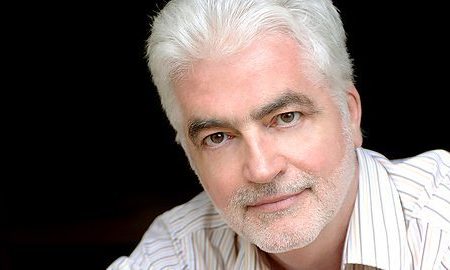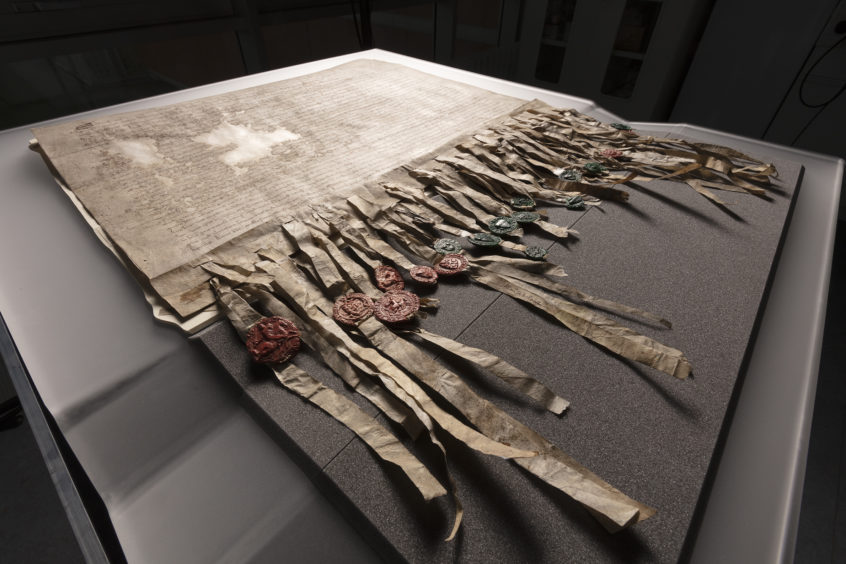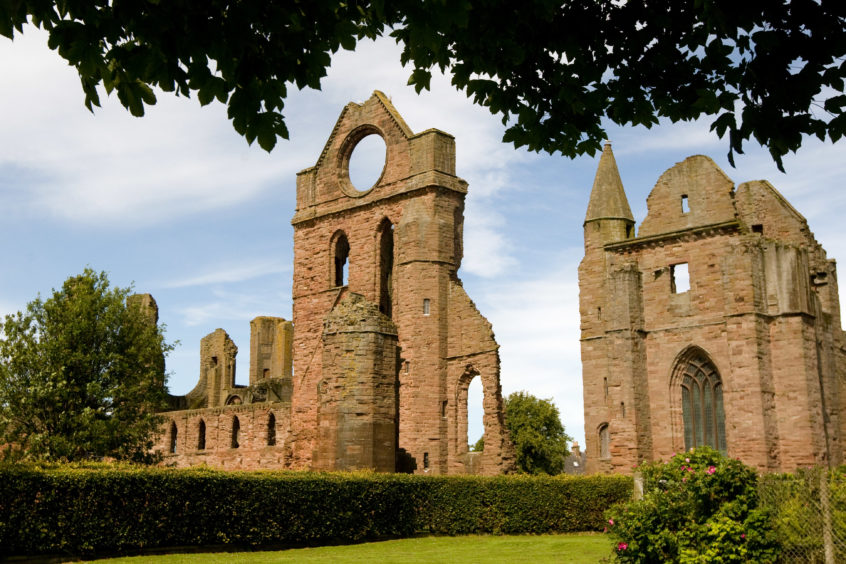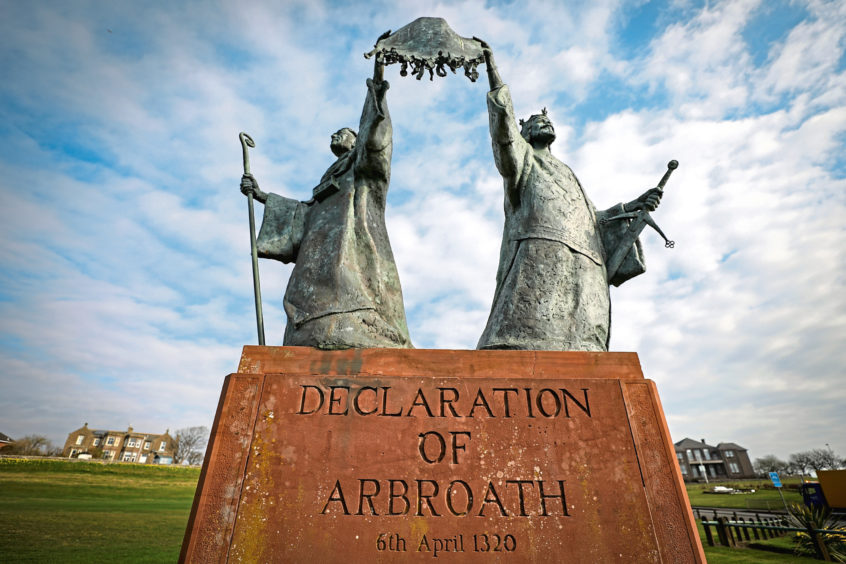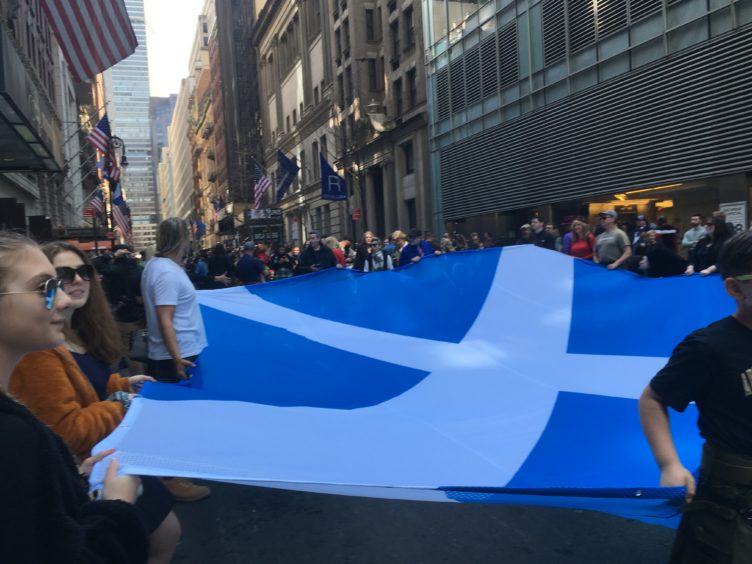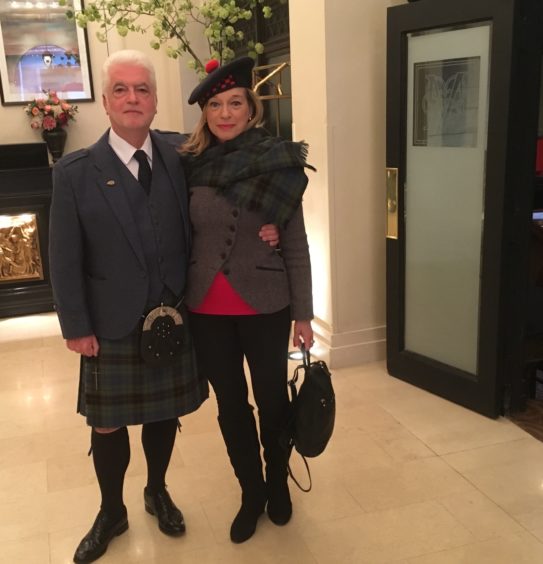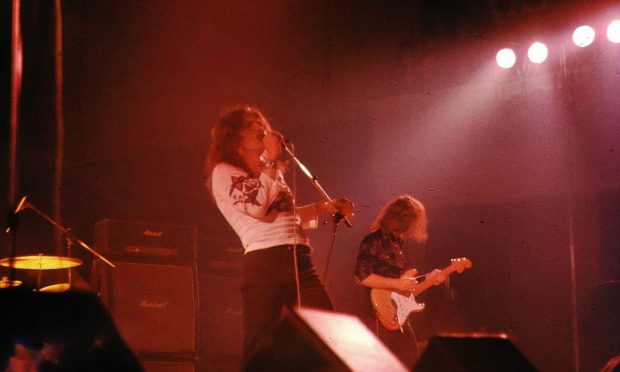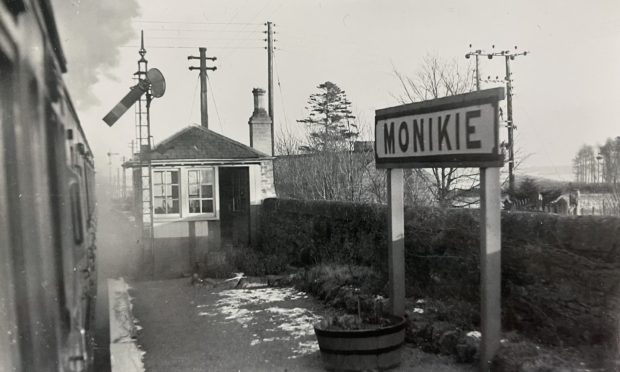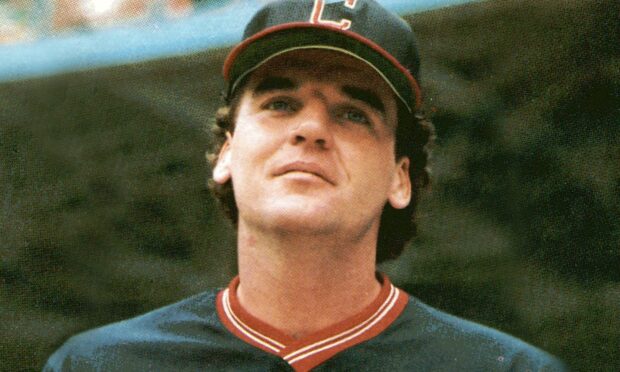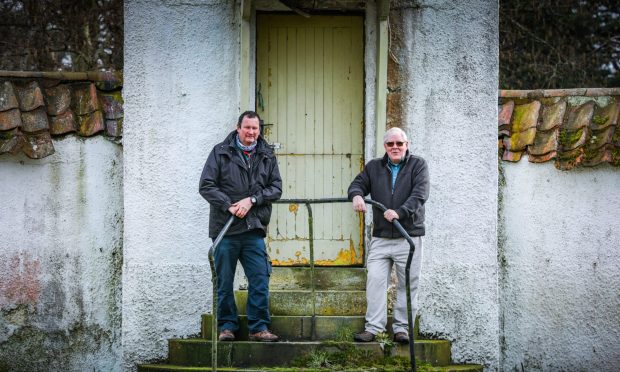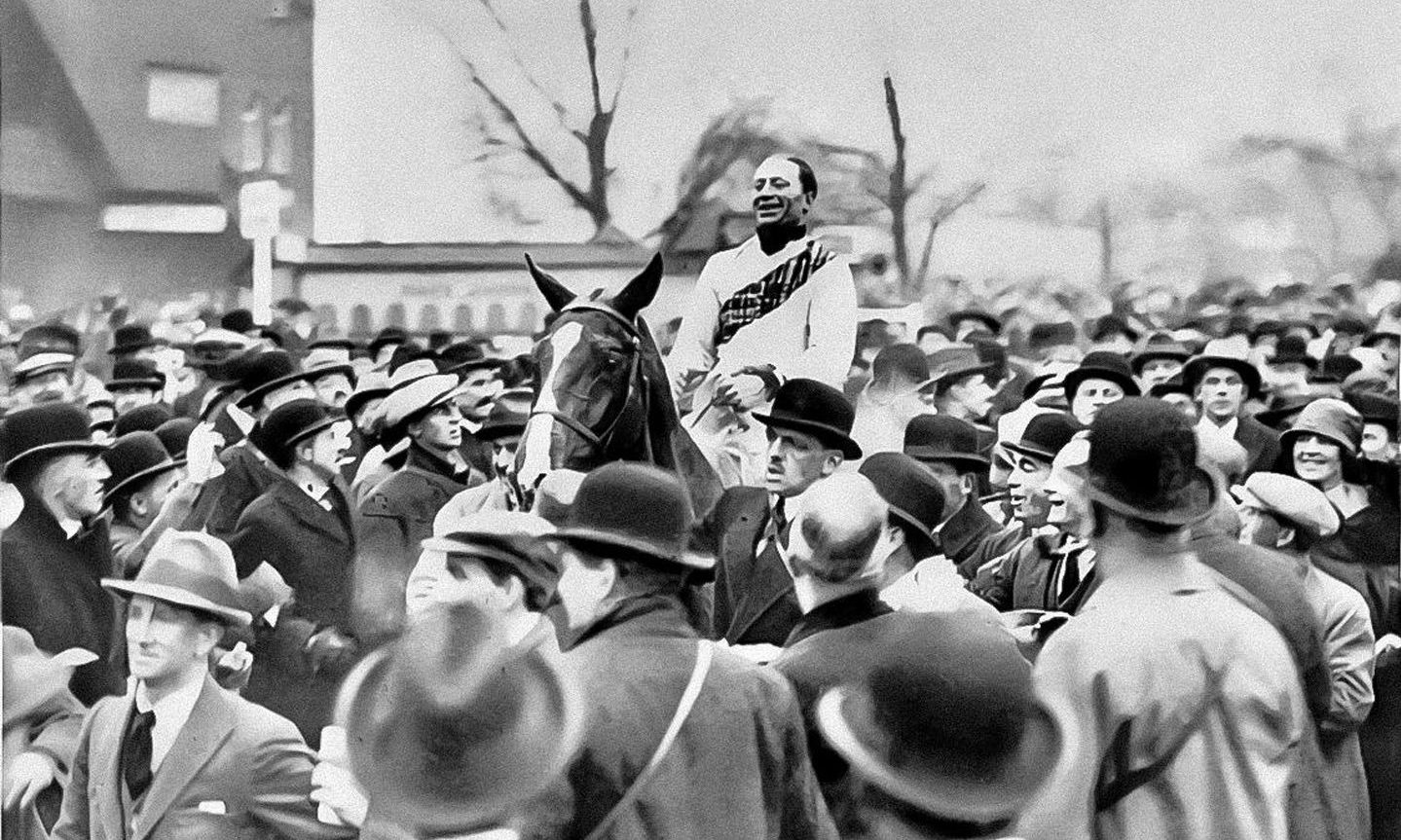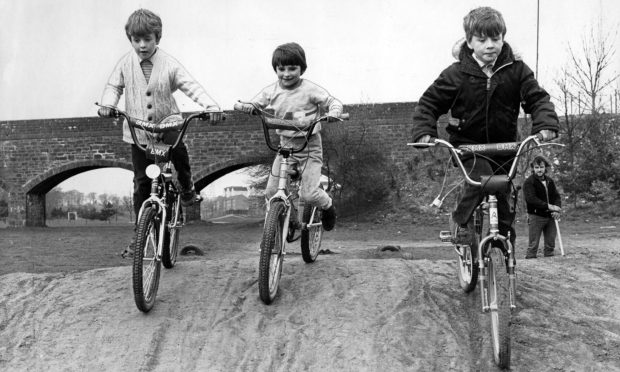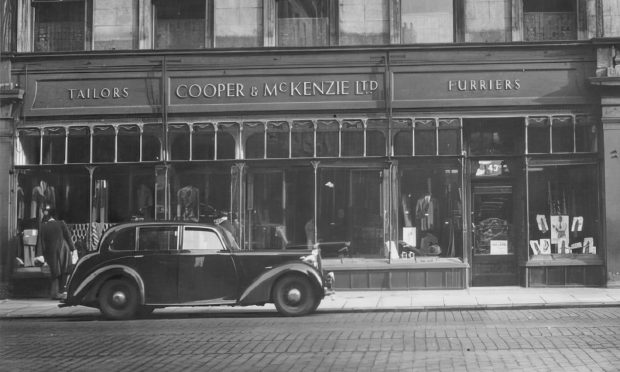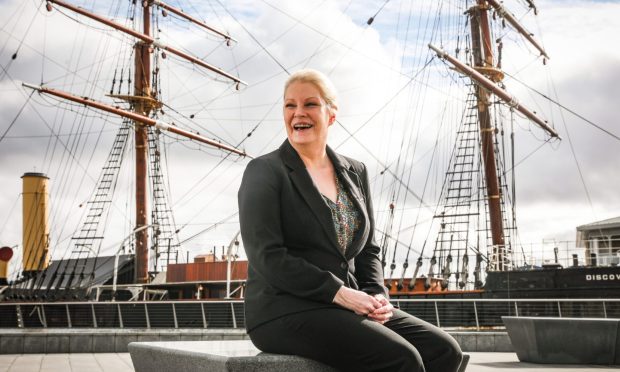Scots expert and broadcaster Billy Kay previews his forthcoming BBC Radio documentary series about the Declaration of Arbroath.
For the 700th anniversary of the Declaration of Arbroath, Newport-based broadcaster Billy Kay presents a major series on one of the most iconic moments in Scottish and world history, when the nobles, barons, freeholders and the community of the realm of Scotland felt compelled to create the document in 1320.
Composed originally in elegant Latin prose it is addressed to Pope John XXII in Avignon who is asked by the Scots to support the cause of their nation’s independence in the face of an overweening, bullying English neighbour.
In doing this, it pulls at the heart-strings of patriots around the world.
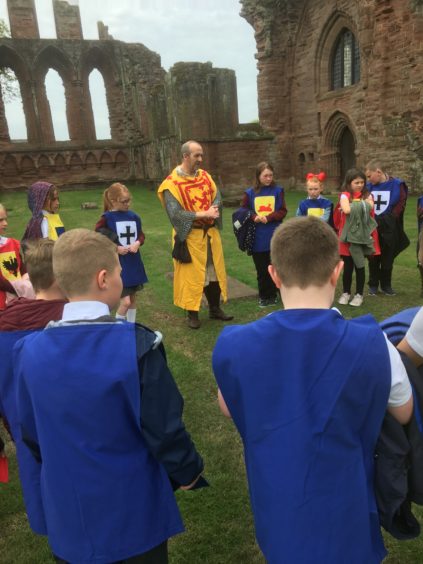
“For, as long as but a hundred of us remain alive, never will we on any conditions be brought under English rule. It is in truth not for glory, nor riches, nor honours that we are fighting, but for freedom — for that alone, which no honest man gives up but with life itself.”
Billy explains how even more revolutionary is the Deposition Clause where they state that sovereignty lies with the Scottish people, and they can depose any King who refuses to defend their status as an independent nation.
At a time when most believed in the concept of the Divine Right of Kings, this precociously democratic sounding rhetoric is quite remarkable:
“Yet if he should give up what he has begun, seeking to make us or our kingdom subject to the king of England or the English, we would strive at once to drive him out as our enemy and a subverter of his own right and ours, and we would make some other man who was able to defend us our king.”
In the series these famous passages are read by none other than Dundee-born actor Brian Cox, recent winner of the Golden Globe Award for Best Actor in a Television Series.
The Declaration of Arbroath was one of the first statements in history defining national sovereignty and it has had a profound influence at home and abroad ever since.
In his book ‘For Freedom Alone’, Edward J. Cowan describes it as: “The first national or governmental expression in all of Europe, of the principle of the contractual theory of monarchy which lies at the root of modern constitutionalism”.
The Declaration’s international dimension is celebrated throughout the series. For example, Ian Forrester, the UK’s last judge in the General Court of the EU, talks about it in relation to Scotland’s place in European history.
Historian Rebecca Wills tells a remarkable story about hiking with her family in the Caucasus Mountains and her astonishment on hearing the Declaration declaimed in Russian by a Georgian border guard.
The possible influence of the Scottish Declaration on the American Declaration of Independence will also be explored with Billy recording the feelings of Scottish Americans on the subject in New York on Tartan Day.
U.S. Senate Resolution 155, of March 20, 1998 states: “April 6 has a special significance for all Americans, and especially those Americans of Scottish descent, because the Declaration of Arbroath, the Scottish Declaration of Independence, was signed on April 6, 1320 and the American Declaration of Independence was modeled on that inspirational document.”
While there is no direct evidence this is in fact the case, Billy outlines substantial circumstantial evidence which suggests that the two documents were connected through the influence there of the Scottish Enlightenment.
Billy says: “James Boswell quoted from it in his writing about the Corsican freedom fighter, Pasquale Paoli – a book which enjoyed great acclaim in the colonies before the American War of Independence.
“Boswell was fascinated by the Declaration. In the university library in Leipzig during the Grand Tour, he comes across a copy of the Declaration and regales astonished scholars: ‘They were struck with the noble sentiments, at the liberty of the old Scots and they expressed their regret at the shameful Union. I felt too, patriot sorrow – o infamous rascals who sold the honour of your country to a nation against which our ancestors supported themselves with so much glory! But I say no more but only, alas, poor Scotland!’”
Billy says this is surprising as Boswell is often regarded as an arch Unionist and Anglophile in 18th century Scotland.
But there will be other surprises in the series!
What is the tie, for example, that links Hugh MacDiarmid, the Declaration of Arbroath and the African American leader Malcolm X? “Tune in to programme three, The Abbey of Arbroath, to find out!” says Billy.
“There we will also meet the bairns of Hayshead Primary School in Arbroath who are asked to create their own version of the Declaration by none other than King Robert the Bruce himself.”
Interviewing major historians and cultural commentators, Billy examines the role of the Declaration in the creation of a modern Scottish identity, which today is often polarised into Nationalist and Unionist camps.
“The hope is that as far as the Declaration is concerned, the admiration and love for it can extend to every Scot,” he says.
“In the words of the writer, Alexander McCall Smith: ‘I don’t think recognising the Declaration of Arbroath for what it is, as this great heart felt plea, doesn’t necessarily mean that one goes down any particular political road – obviously it is a very, very powerful Declaration in that sense, but it’s a declaration for all people.”
- Three-part series The Declaration by Billy Kay is broadcast on BBC Radio Scotland at 1.32 pm on April 6, 7 and 8. It will then be available on BBC iPlayer.
- For more on the history of the Declaration of Arbroath, see The Courier’s Weekend magazine of Saturday April 4.
